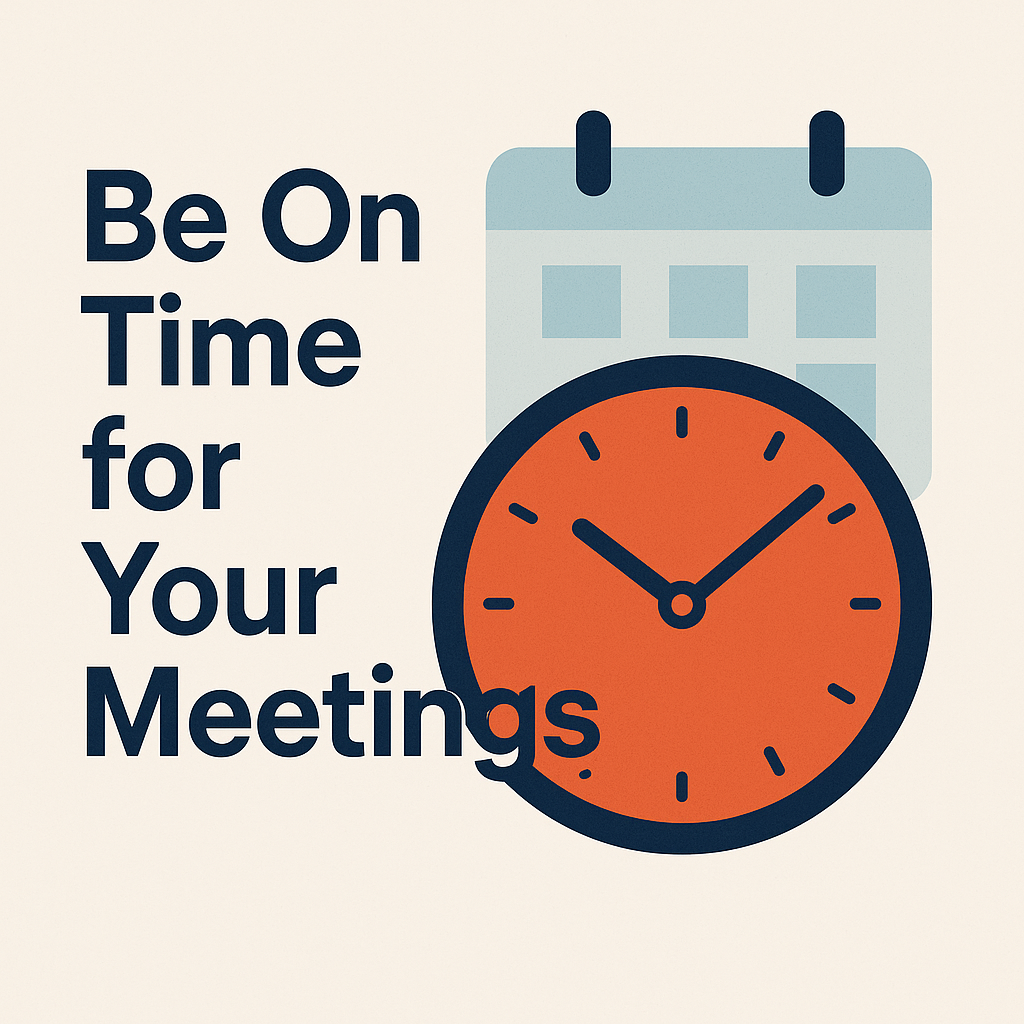Be On Time for Your Meetings
Danielle Morrill

Let’s get the obvious out of the way: Reason 0 to be on time is that being late is rude. It signals to everyone else that their time is less important than yours. But if common courtesy alone isn’t enough to convince you, here are some deeper reasons to take punctuality seriously—especially in the context of remote work and modern collaboration.
Why People Are Late
There are a few predictable reasons people give for being late:
- Previous meeting ran over
- Double-booked
- Didn’t have the meeting on their calendar
- Got distracted and lost track of time
- Not in a location where they can take a meeting
Let’s be honest: these are real issues—but they’re solvable. And more importantly, they’re still your responsibility.
What these reasons have in common is that they suggest you’re not in control of your own time. Whether or not that’s true, being late makes it look like you’re disorganized, and that affects how others perceive your professionalism.
What Your Tardiness Signals to Others
When you show up late, people rarely say anything. But that silence isn’t consent—it’s resignation. They’ll quietly tolerate your lateness while recalibrating how much they can rely on you.
Worse, it chips away at team norms. It’s the Broken Windows Theory of meeting culture. If people see lateness going unchallenged, they start to think, “Why bother showing up on time? Nothing really starts until 5–10 minutes in anyway.”
Suddenly, everyone is late, and the meeting doesn’t get going until 10 past the hour—if at all. The quiet achievers and conscientious colleagues start to feel frustrated, and you’ve created a collective problem out of what started as an individual behavior.
Don’t Be the Bottleneck
Most meetings don’t require every attendee to speak—but they do require everyone to be present. Showing up late creates friction. Even if you think you’re not disrupting anything, someone else now has to:
- Repeat themselves to catch you up
- Pause the discussion to adjust context
- Waste precious time getting back on track
That kind of disruption is felt more strongly in smaller teams, where each person’s contribution carries weight. You might not notice it, but the meeting slows down every time someone has to play “catch-up concierge.”
A Better Norm: Start on Time, End on Time
At Groupthink, we believe in building meeting cultures that people can actually thrive in. That means:
- Starting on time, out of respect for everyone’s schedules
- Ending on time, so no one’s back-to-back is jeopardized
- Using agendas to stay focused and reduce filler
- Making sure recaps are automatic, so people who do miss something can catch up asynchronously
Want to help your team move faster and collaborate better? It starts with a simple habit: Be. On. Time.
TL;DR: Time is a Shared Resource
Think of meetings like a commons—shared space where everyone contributes and benefits. When you’re late, you’re overgrazing. One person doing it once isn’t the end of the world. But if it becomes a pattern—especially one others start to mimic—you’ll degrade the effectiveness of the whole system.
So do your part. Set reminders. Pad transitions. Respect the calendar. And when others see that, they’ll follow your lead.